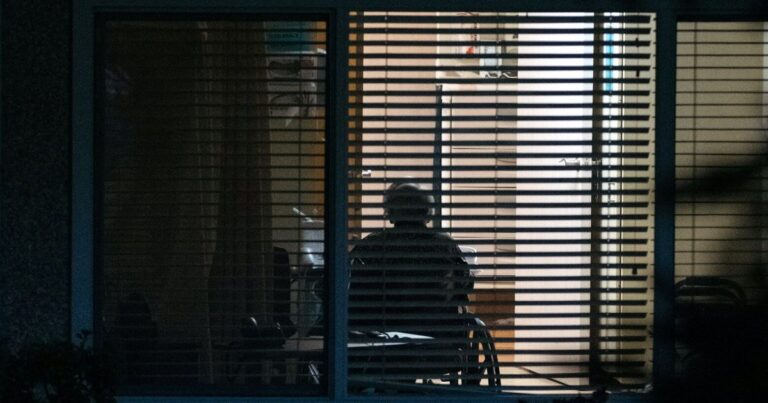Think about that sooner or later you knock on the door. The individual at your door says you’re being kicked out of your private home. There’s nothing you are able to do about it.
Or think about you fall and harm your self. You go to the emergency room. The physician will preserve you within the hospital for a number of days. If you end up prepared for launch, you may be notified that your lodging is now not out there to you. Now think about these eventualities occurring to an aged individual. Or somebody who is way youthful however has a traumatic mind harm attributable to an accident. Or somebody who has superior dementia or Alzheimer’s illness.
As Washington State long-term care ombudsmen, I get calls from individuals like this on a weekly foundation – individuals being kicked out of long run care services. I additionally get calls from hospitals asking for assist as a result of a long run care dwelling “dumped” a resident within the ER and will not take the individual again. In Washington, “long-term care facility” often means a nursing dwelling, nursing dwelling, or grownup household dwelling. Washington leads the nation in giving individuals extra decisions than costly nursing properties after they want long-term care.
Nevertheless, the protections of the landlord-tenant act don’t apply to the practically 60,000 long-term care residents who reside in nursing properties or grownup household properties. Truthful listening to rights — the federal rights granted to nursing dwelling residents — don’t apply to them. That is the unlucky state of our legislation, even when the individual has lived of their care facility – their dwelling – and made their month-to-month funds for years. There are six authorized the reason why a resident could be kicked out of a nursing dwelling or grownup household dwelling. However these evictions are usually not topic to impartial evaluation earlier than the resident is compelled out. Residents lack the authorized proper to attraction the power’s determination.
With out the proper to complain, there isn’t a accountability to the legislation and it makes it straightforward to abuse essentially the most weak and fragile in our society. Driving a long-term care resident into homelessness, with none entry to any authorized course of to guard their rights, ought to be unthinkable.
So who checks to verify the trigger is official? Who listens to the small print and decides which aspect is “proper” – the celebration that initiated the eviction or the celebration that will get kicked out? Most often, nobody does. The individual being kicked out feels defeated, scared, uncertain of their rights and believes they don’t have any different possibility however to depart. Even when they’ve nowhere to go. If they’d lived in a nursing dwelling, they’d have a lot larger rights. However as a result of they selected a “community-based” atmosphere, a extra home atmosphere, they don’t have these rights. This alternative made by hundreds of long-term care residents over the previous 30 years has saved the federal authorities and taxpayers thousands and thousands of {dollars}.
How can this be mounted? All residents of long-term care settings should have the identical “honest listening to” rights as residents of nursing properties. Home Invoice 1859, a invoice sponsored by Rep. Tarra Simmons, would give residents of all licensed long-term care services an avenue to acquire authorized evaluation when they’re evicted. The safety of an appeals course of doesn’t assure that the resident will win, however it’ll give all sides their “day in court docket.”
The best reward Washington State lawmakers can provide our most weak members of the family, pals and neighbors residing in long-term care properties is entry to due course of and the protection, safety and stability that comes with it.

